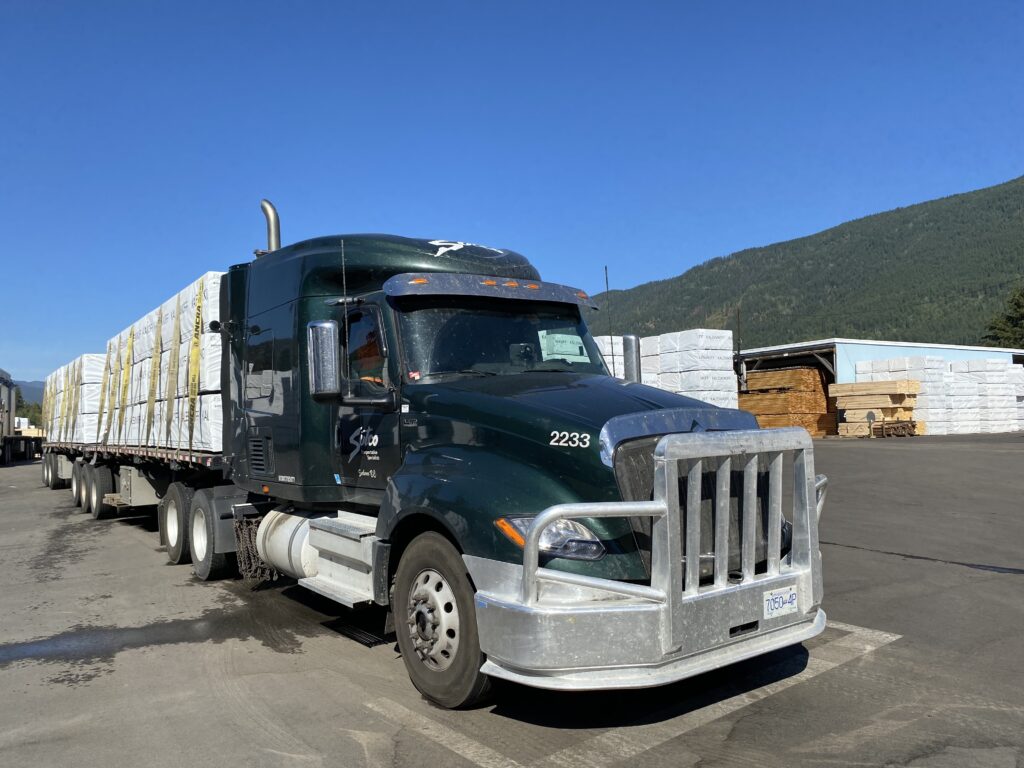
Industry News
News
B.C. drives industry shift to cleaner heavy-duty transportation
April 28, 2023 By Government of British Columbia
 Photo: Annex Business Media.
Photo: Annex Business Media. British Columbia’s commercial vehicle sector is accelerating toward the clean transportation economy with provincial support to help organizations achieve their climate goals, reduce costs and remain competitive.
“The future of transportation is clean, electric and carbon emission-free. British Columbians are embracing zero-emission vehicles faster than any other jurisdiction in Canada, but we know it can be more difficult for the commercial vehicle sector to make the switch,” said Premier David Eby. “Supporting industry with new heavy-duty charging stations and support to buy and develop zero-emission vehicles reduces emissions and means cleaner air for all.”
Three CleanBC programs are receiving new funding to encourage industry to move to zero-emission vehicles: the Commercial Vehicle Pilots (CVP) program, the Commercial Vehicle Innovation Challenge, and support for medium- and heavy-duty vehicle charging infrastructure.
“B.C. is already leading Canada in the switch to zero-emission vehicles for personal transportation, with a record number of British Columbians choosing to go electric,” said Josie Osborne, Minister of Energy, Mines and Low Carbon Innovation. “Today’s announcement will ensure that B.C. businesses are leading the way in the emerging, rapidly growing market for medium- and heavy-duty electric vehicles. Provincial investments are helping to break down barriers and accelerate adoption, so we can power our economy with clean electricity instead of fossil fuels.”
Seaspan Ferries Corporation has received support to acquire fast-charging stations and two large-battery electric vehicles to move heavy cargo. The Seaspan project is one of 20 projects that shared $17.3 million under the CleanBC Go Electric CVP program to support buying electric vehicles, including hydrogen-fuel-cell vehicles and charging ports. The CVP program has a budget of $89 million over seven years, which includes $40 million from Budget 2023.
The CVP program encourages organizations to adopt medium- and heavy-duty zero-emission vehicles (ZEVs) to help decarbonize commercial vehicles, including on- and off-road medium- and heavy-duty vehicles, aircraft, marine vessels and rail. Every ZEV on the road, especially those replacing heavy, fuel-hungry big vehicles, means a reduction in pollution, resulting in cleaner air, cleaner water and quieter streets – and fewer fuel and maintenance costs, which helps businesses remain competitive.
Under StrongerBC for the Commercial Vehicle Innovation Challenge, an additional $30 million will help address the technology gap in the hard-to-decarbonize commercial vehicle sector, while also creating economic growth, jobs and continued investment in a growing B.C.-based ZEV technology sector.
The Commercial Vehicle Innovation Challenge supports accelerating ZEV technology from the idea stage to market, helping innovators and entrepreneurs through the design and build phases of new clean technologies for the commercial vehicle sector, including medium- and heavy-duty vehicles, marine, rail and aviation. An expression of interest period is open for candidates specializing in ZEV technology.
To support British Columbians’ transition to electric vehicles, $19.5 million is being invested in specialist medium- and heavy-duty vehicle charging stations under the CleanBC Public Charging Program, allowing for 130 new medium- and heavy-duty charging stations throughout the province. This funding is in addition to $26 million previously announced for more light-duty charging stations throughout B.C.
Print this page